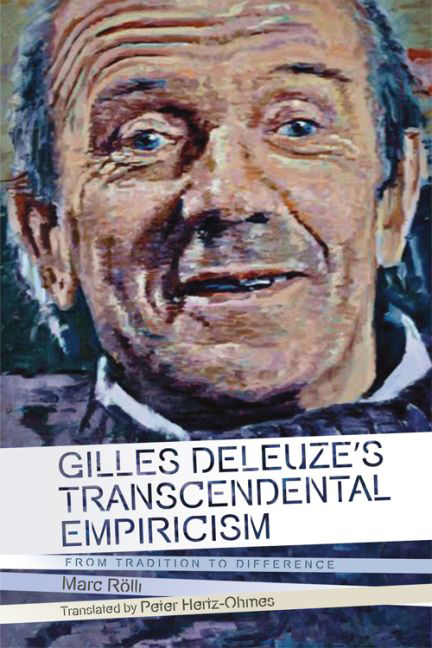Book contents
PART III - DELEUZE'S TRANSCENDENTAL EMPIRICISM
Published online by Cambridge University Press: 27 April 2017
Summary
In Difference and Repetition, Gilles Deleuze's ‘major’ systematic work, difference philosophy reaches its culmination. The title alone indicates both an intensification of Heidegger's ontological position and flight from the seductive profundity that actually wants to keep what is unique and original out of the repetition-event in immanence. Heidegger's negative interpretation of the notion of eternal return thus gives Deleuze cause to make a clean break with Heidegger's concept of repetition. His own concept, inspired by Nietzsche, is related directly to difference. That is why Deleuze cites his lifelong allegiance to empiricism, since there is no other philosophy that so vehemently questions the metaphysical image of thought – and why he defends immanence so vigorously against transcendence. Deleuze begins his philosophising with Hume, and his very last text still revolves around empiricism.
We will speak of a transcendental empiricism in contrast to everything that makes up the world of the subject and the object. There is something wild and powerful in this transcendental empiricism that is of course not the element of sensation (simple empiricism), for sensation is only a break within the flow of absolute consciousness. It is, rather, however close two sensations may be, the passage from one to the other as becoming, as increase or decrease in the strength of virtual quantity.
(Deleuze 2001: 25)Deleuze constantly thinks of himself as an empiricist, even if, over the years, his concept of empiricism does not remain the same. During the second half of the 1950s, at a time marked by a curious inactivity as an author, a fundamental shift in his conceptual coordinate system takes place. In retrospect, this gap in publication after his book on Hume (1953) appears to Deleuze himself as ‘a gap in my life, a gap of eight years. That is for me something interesting about life, the gaps they contain. […] Maybe movement occurs in these gaps’ (Deleuze 1995: 138). Michael Hardt has already drawn attention to this ‘critical’ phase, in which Deleuze works out his philosophical convictions: ‘This eight-year hole in Deleuze's intellectual life does in fact represent a period of movement, a dramatic reorientation of his philosophical approach’ (Hardt 1993: xx).
- Type
- Chapter
- Information
- Gilles Deleuze's Transcendental EmpiricismFrom Tradition to Difference, pp. 155 - 156Publisher: Edinburgh University PressPrint publication year: 2016



